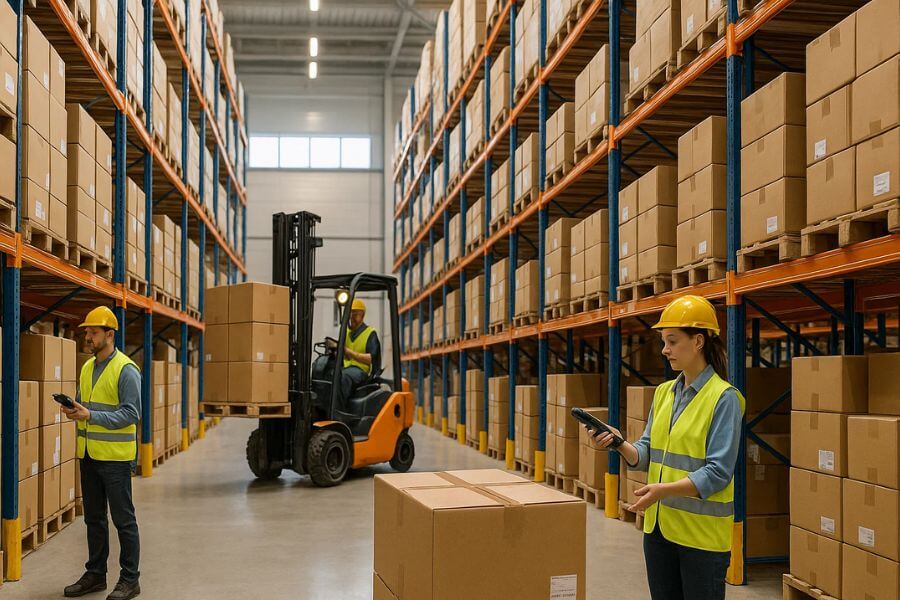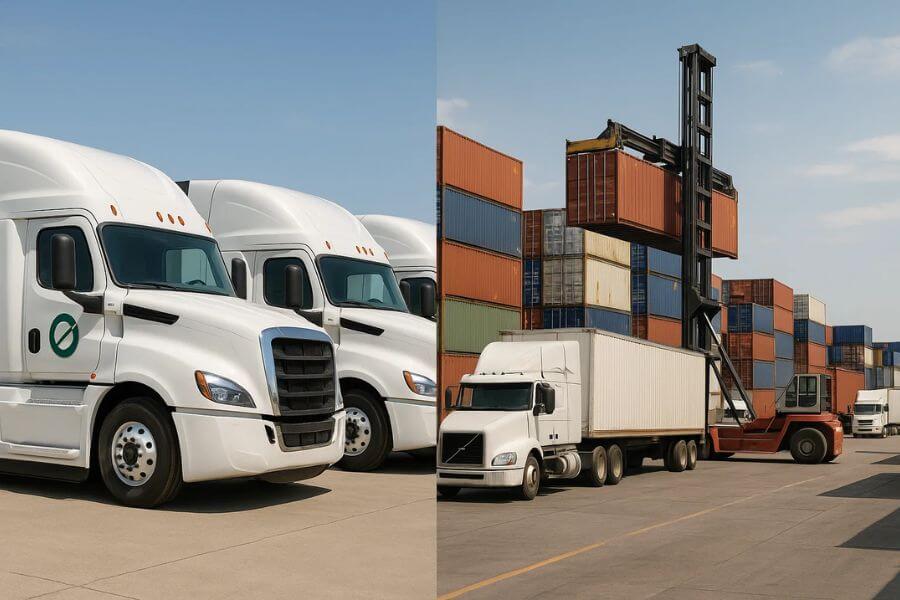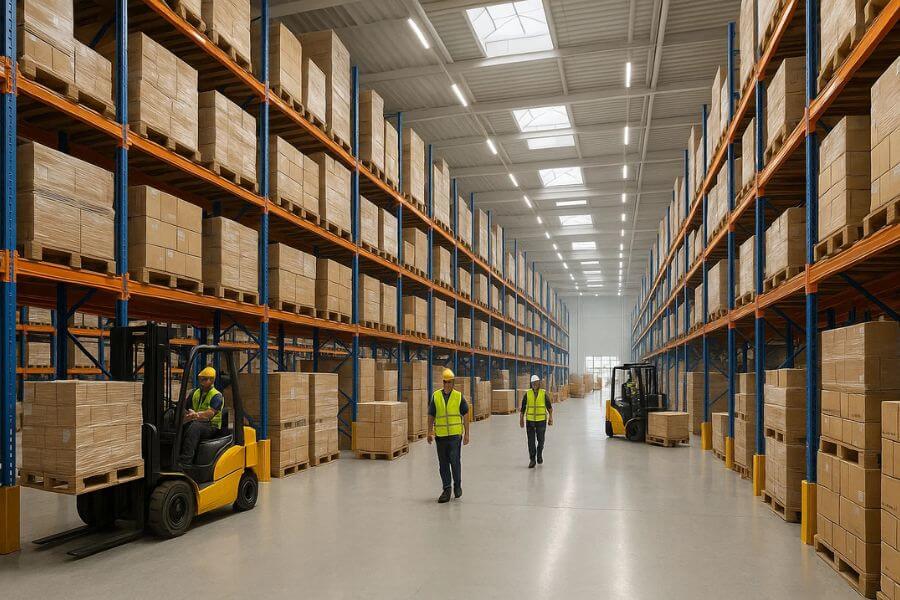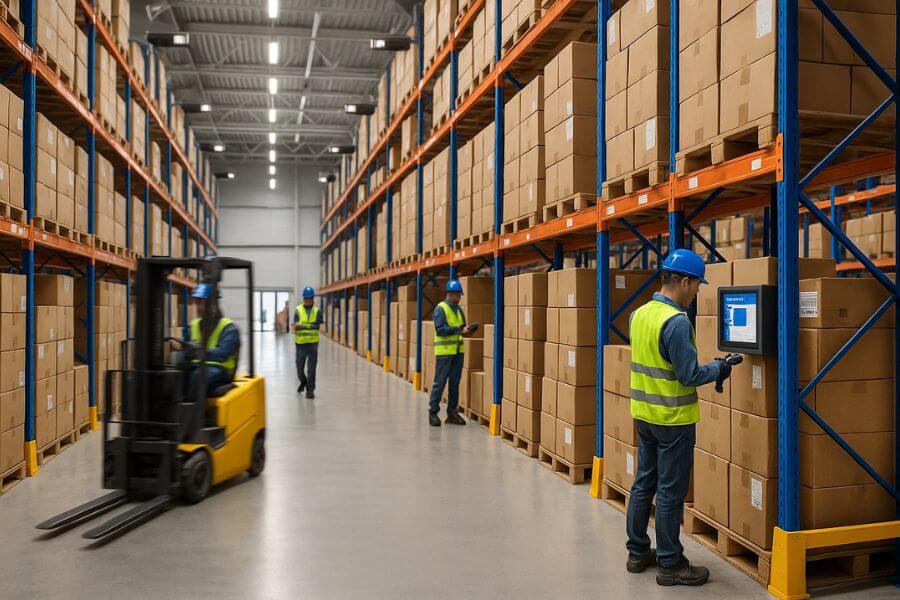Running a growing business means constantly balancing efficiency, customer expectations, and profitability. As sales increase, so do the complexities of managing inventory, fulfillment, and distribution. What may have worked in the early stages, like storing products in a small facility, using shared warehousing, or even keeping boxes stacked in the office, can quickly become unsustainable.
This is where dedicated warehousing services make a difference. Unlike public or shared warehousing, dedicated warehousing gives your business exclusive access to warehouse space, resources, and staff. This ensures that your inventory and operations aren’t competing with other companies for attention.
But how do you know if your business has reached the point where dedicated warehousing is necessary? Below are 10 detailed signs that it might be time to make the move, each one a clear indicator that your operations need more structure, scalability, and control.
1. Your current storage space is always running out
One of the earliest red flags businesses notice is running out of storage space. At first, you might rent an extra storage unit, stack boxes in unused office corners, or lease small warehouse spaces. But as inventory grows, these patchwork solutions create bigger problems.
Cluttered spaces make it harder for employees to locate products, which slows down order fulfillment. Stacking inventory inappropriately can also damage goods, resulting in waste and unnecessary costs. Worse, when your space is maxed out, adding new product lines or handling seasonal demand becomes nearly impossible.
How dedicated warehousing solves this:
- Provides flexible, scalable storage tailored to your inventory size
- Uses professional shelving and racking systems designed for efficiency
- Keeps products organized, reducing wasted time searching for items
👉 Example: A growing ecommerce brand selling home décor may start by storing items in a small facility. But as orders increase, oversized furniture and delicate items demand more structured storage. A dedicated warehouse can offer pallet racking, climate-controlled areas, and specialized handling.
2. Customer orders are frequently delayed
Modern customers expect fast, accurate shipping, sometimes even same-day or next-day delivery. If your business frequently delivers late or struggles to process orders quickly, customers won’t hesitate to switch to competitors.
Order delays often stem from poor inventory organization, lack of staff, or inefficient warehouse processes. When a warehouse handles multiple businesses (like in shared warehousing), your orders may not always be prioritized, causing further delays.
How dedicated warehousing solves this:
- Implements customized workflows to fit your fulfillment process
- Provides staff focused only on your orders, improving accuracy and speed
- Uses warehouse management systems (WMS) for real-time order tracking
👉 Example: An online apparel retailer struggling during holiday sales could avoid shipping backlogs by moving to a dedicated warehouse. With optimized picking routes and a staff assigned exclusively to their orders, they can ship thousands of packages daily without delays.
3. Inventory management has become a constant headache
Do you find yourself dealing with frequent stockouts, overstocking, misplaced inventory, or inaccurate counts? These are signs of weak inventory management.
Poor tracking not only frustrates customers but also hurts your bottom line. Overstocking ties up capital in unsold products, while stockouts mean missed sales opportunities. Businesses relying on manual tracking or outdated systems often face these challenges.
How dedicated warehousing solves this:
- Implements advanced WMS to track inventory in real time
- Uses barcode or RFID scanning for accuracy
- Reduces shrinkage and ensures products are stored systematically
👉 Example: A food and beverage company might experience spoilage due to poor rotation practices in a shared warehouse. With a dedicated facility, strict FIFO (First-In, First-Out) or FEFO (First-Expired, First-Out) systems can be enforced to minimize waste.
4. You're expanding into new markets or sales channels
Growth brings complexity. Expanding into new regions, adding ecommerce channels, or launching new product lines requires more sophisticated logistics.
Shared warehousing may not adapt quickly enough to support multi-channel fulfillment or new market expansion. This can result in inconsistent delivery times, stock imbalances, and frustrated customers.
How dedicated warehousing solves this:
👉 Example: A skincare company originally selling only in physical stores might add an ecommerce channel. A dedicated warehouse can create separate workflows: bulk shipments to retail locations and small parcel fulfillment for online orders without overlap or confusion.
5. Seasonal demand is hard to manage
Businesses in industries with seasonal demand including fashion, toys, or consumer electronics, often experience sharp spikes during holidays or product launches. Shared warehouses may not give your inventory priority during these busy periods, leaving you with stock stuck in storage while competitors fulfill orders faster.
How dedicated warehousing solves this:
- Provides flexible staffing to handle seasonal surges
- Prioritizes your products during peak demand
- Reduces fulfillment bottlenecks during critical sales periods
👉 Example: A toy company relying on shared warehousing may struggle to keep up during the December rush. With a dedicated warehouse, additional temporary staff and specialized packing stations can be set up in advance to ensure smooth operations.
6. You need greater control over your supply chain
If you’ve ever felt like your logistics provider is in control instead of you, that’s a problem. Shared warehousing means you often have to adapt to their systems, timelines, and staffing decisions. This lack of control makes it difficult to enforce service standards.
How dedicated warehousing solves this:
- Provides exclusive access to warehouse staff, processes, and resources
- Allows you to customize workflows based on your specific needs
- Gives full visibility into operations through detailed reporting
👉 Example: An electronics distributor handling fragile, high-value items can set up specialized handling protocols in a dedicated warehouse, ensuring products are stored and shipped safely according to company standards.
7. Shipping costs are eating into your profits
For many businesses, shipping is one of the largest expenses in the supply chain. If your warehouse is poorly located or shipments aren’t optimized, costs skyrocket.
Shared warehousing doesn’t always allow for strategic distribution planning since space and carriers are shared among multiple businesses.
How dedicated warehousing solves this:
- Positions inventory closer to your primary customer base
- Consolidates shipments to cut transportation costs
- Uses dedicated carrier partnerships to negotiate better rates
👉 Example: An ecommerce brand selling nationwide from a single East Coast location may save significantly by adding a centrally located dedicated warehouse in the Midwest, reducing average shipping zones and costs.
8. Your business handles sensitive or specialized products
Some products require extra care. Whether it’s perishable food, pharmaceuticals, hazardous materials, or luxury goods, improper storage or handling can cause compliance issues, product damage, or loss of trust.
Shared warehouses often don’t provide the level of specialization needed.
How dedicated warehousing solves this:
- Offers climate-controlled storage for perishables
- Maintains security protocols for high-value items
- Complies with industry-specific regulations (FDA, OSHA, ISO, etc.)
👉 Example: A pharmaceutical company storing temperature-sensitive drugs can use a dedicated facility with strict climate control and compliance measures, ensuring product safety and meeting legal standards.
9. Labor and staffing issues keep slowing you down
One of the biggest challenges in warehousing is workforce management. Training, turnover, and staffing shortages can delay order fulfillment. Shared warehouses often juggle multiple clients with the same pool of workers, meaning your business doesn’t always get the attention it needs.
How dedicated warehousing solves this:
- Assigns a workforce trained specifically for your products
- Maintains staffing levels based on your order volumes
- Ensures higher accuracy and faster fulfillment with fewer disruptions
👉 Example: A company shipping fragile glassware could benefit from a team trained specifically in packing delicate products, reducing breakage and improving customer satisfaction.
10. You're ready to scale, but your current setup can't keep up
Scaling a business means more SKUs, higher order volumes, and wider distribution networks. Unfortunately, many businesses hit a ceiling when their warehousing and fulfillment operations can’t keep pace with growth.
How dedicated warehousing solves this:
- Provides room to expand without switching facilities constantly
- Offers scalable staffing, space, and systems to match growth
- Ensures your logistics infrastructure can support long-term expansion
👉 Example: A subscription box company growing from 5,000 to 50,000 monthly shipments could easily outgrow a shared warehouse. A dedicated warehouse allows them to scale operations while maintaining consistent quality and efficiency.
Key benefits of dedicated warehousing
Choosing dedicated warehousing isn’t just about solving today’s problems; it’s about setting up your business for long-term success.
- Efficiency: Faster order processing and reduced downtime.
- Accuracy: Advanced inventory management systems reduce errors.
- Customization: Processes, layouts, and workflows tailored to your needs.
- Control: Greater visibility and authority over your supply chain.
- Scalability: Ability to expand into new markets and handle growth seamlessly.
Conclusion
As businesses grow, their warehousing needs evolve. The early signs, like constant space shortages, shipping delays, or inventory headaches, often go ignored until they begin costing real money and customer trust.
If your business shows any of the 10 signs above, dedicated warehousing services may be the solution you need. By investing in a dedicated facility, you gain control, scalability, and efficiency, all critical factors for staying competitive in today’s fast-paced market.
Frequently asked questions
Q1: What is the difference between dedicated warehousing and shared warehousing?
Dedicated warehousing gives your business exclusive use of a facility (or section of it), while shared warehousing stores products from multiple businesses in the same space. Dedicated options offer more control, customization, and scalability.
Q2: When is the right time for a business to switch to dedicated warehousing?
If you’re experiencing frequent order delays, running out of storage space, struggling with inventory management, or planning to scale, it’s likely time to consider dedicated warehousing services.
Q3: Is dedicated warehousing more expensive than shared warehousing?
Yes, dedicated warehousing usually has higher upfront costs, but the efficiency gains, improved customer satisfaction, and lower shipping errors often lead to better long-term savings and profitability.
Q4: Can dedicated warehousing handle specialized storage needs?
Absolutely. Dedicated facilities can be customized with climate control, security systems, or compliance protocols to handle perishable, high-value, or regulated products.
Q5: How does dedicated warehousing improve customer satisfaction?
By streamlining fulfillment, reducing delays, and ensuring accurate deliveries, dedicated warehousing helps businesses consistently meet customer expectations, leading to stronger loyalty and repeat purchases.










